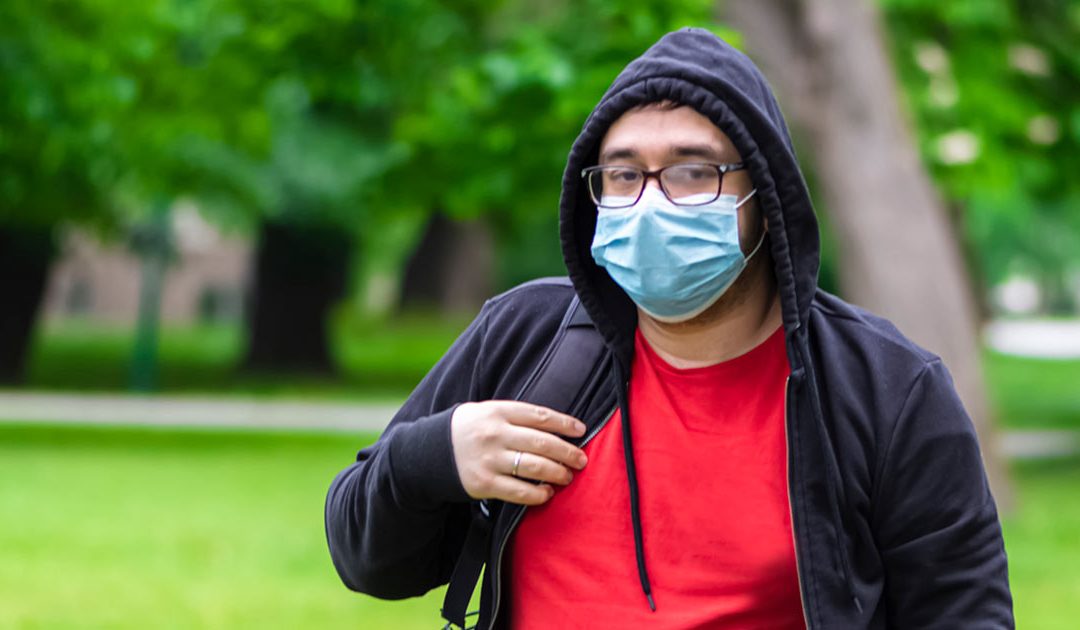Glynn’s Guide
- Diseases of obesity are slow killers, but they can make COVID-19 a fast killer.
- Diabetes poses the highest risk of COVID-19.
- Many of these diseases are preventable through better nutrition.
- COVID-19 should amplify your desire to lose weight if you’re obese.
Note* I am not obtaining my information from the media or hearsay. I’m reviewing peer-reviewed research articles, which have been made available to anyone in academia on this subject. I’m avoiding opinions, only conveying information as it evolves.
It pains me to write this article because it’s a sensitive issue. It needs to be said, but with compassion. One of the major underlying factors that contribute to COVID-19 complications and death is obesity. Excess fat isn’t necessarily the cause of complications. But it’s the diseases that are prevalent from obesity that complicate the disease.
Cai states, “…obese patients had increased odds of progressing to severe COVID-19.” A very recent study by Muscogiuri states, “…that patients who required invasive mechanical ventilation (IMV) increased with BMI categories (p < 0.01) and it was greatest in patients with BMI >35 kg/m (85.7%).” That’s a serious statement!
This is where I beg you, the reader to seriously consider changing your dietary behavior if you are overweight. This is not the time to pack on additional pounds during quarantine or working from home.
I’ve never been one to judge anyone for their weight much like I don’t see color or sex. I try to find the good in each person. And it breaks my heart to know that COVID is riskier for those overweight.
What are the diseases that obesity promotes?
The most common diseases that obesity can lead to are listed.
- Diabetes (type 2)
- Cardiovascular disease
- hypertension
- coronary heart disease
- cardiomyopathy
- Cancer
Type 2 diabetes usually occurs from someone slowly becoming insulin resistant. In other words, they produce insulin, but it doesn’t do its job. The cells have become desensitized.
Cancer can occur from a hyperinflammatory response caused by obesity. In some cases, the excess calories leads to cancer. Other cases may be associated with carcinogenic compounds in some foods. And then of course there’s the potential for cancer from diabetes. But that’s for another article.
Cardiovascular disease resulting from obesity is generally because of the increase in other risk factors. These include, but are not limited to high cholesterol, hypertension, hyperglycemia, and insulin resistance.
Why do these diseases increase the risk of death?
The predominant factor in all health issues is a weakened immune system. This is simplified as it’s beyond the scope of this article to cover specific complications.
But you already know that all of the diseases left uncontrolled lead to death. COVID-19 simply accelerates the process.
The main point in discussing diseases caused by obesity is to clarify why COVID-19 mortality is so closely related to obesity. We’ll break each one down below.
How does diabetes affect COVID?
Diabetes might just be one of the leading underlying health conditions that lead to mortality from COVID. Why?
Singh states, “Diabetes and associated complications can increase the risk of morbidity and mortality during acute infections due to suppressed innate and humoral immune functions.”
Diabetic ketoacidosis can be a fatal metabolic complication from uncontrolled blood glucose. It generally occurs in type 1 diabetes. But it’s been shown to occur in COVID patients with type 2 diabetes.
Ketoacidosis may be one of the mechanisms that increase the incidence of mortality in diabetic patients.
How does cardiovascular disease affect COVID?
Not only is the receptor site that COVID-19 attaches to in lung tissue, but it’s also prevalent in heart tissue. In other words, cardiac tissue is a welcoming home to the virus. Clearly, not a good thing!
So, what does the virus do to cardiovascular tissue? Apparently, the cause is indirect. It’s a combination of reduced oxygen supply, severe lung failure, and the cytokine storm.
Clerkin states, “the report from the National Health Commission of China reported that almost 12% of patients without known CVD had elevated troponinelevated levels indicate heart injury levels or cardiac arrest during hospitalization.” That’s an alarming number.
Wang states, “Hypertension, diabetes, COPD, cardiovascular disease, and cerebrovascular disease are major risk factors for patients with COVID-19.”
Regardless, being overweight has always put one’s heart at risk. This only adds fuel to the fire.
Does cancer worsen the outcome of COVID?
The biggest concern with cancer is at the time of chemotherapy due to immunosuppression. It’s critical that patients during this time minimize contact risk.
There is minimal data for cancer patients who have transmitted COVID-19, so it’s difficult to accurately draw a conclusion. Regardless, of the data we have, the outcome is poor for patients undergoing treatment.
But it’s not always just one disease
It’s common that many COVID-19 patients are dealing with comorbidityThe simultaneous presence of two or more diseases. This of course potentially worsens the outcome.
And it’s common for obese individuals to have more than one of the discussed diseases. And they may not even know it yet.
Is COVID worse if you’re just overweight, not obese?
This is where there’s a grey area. One study I reviewed by Sanchis-Gomar states “ACE2 expression in adipose tissue is higher than that in lung tissue, which means that adipose tissue may be vulnerable to COVID-19 infection.”
This means that carrying excess fat still puts individuals at a higher risk. Does this translate into a higher mortality rate based on the amount of fat? Based on one study, yes.
This should be enough of a concern to work on losing the additional pounds. I get it, it’s not at the forefront of everyone’s mind. But under the circumstances, it should definitely be made a higher priority.
Is COVID worse if you’re deficient in Vitamin D?
There is emerging evidence that a deficiency in Vitamin D can increase your risk of complications from COVID-19.
I only mention this because I’ve read data in the past and currently that obese individuals tend to have a mild Vitamin D deficiency.
Under these circumstances, I would suggest supplementing Vitamin D prophylactically. Especially if you’re overweight.
Obesity and social stigma
As if there wasn’t enough of a social stigma already surrounding obesity! Now we can add a higher risk of mortality from COVID to the list.
Not only are they being judged for the excess weight, but I’m sure some people will judge for this too. Why are we so nasty to each other? I prefer not to be included in the previous “we.”
What are some dietary options for weight loss?
There are a lot of popular dietary methods to follow for weight loss. I’m an advocate for anything that is realistic, works for someone’s lifestyle/schedule, and maintains nutritional balance. A few methods that I’ve had success with for my clientele are:
- Elimination of sugars
- Five small meals
- High protein, moderate fat and low carbs
- A ketogenic diet (usually only when there’s a lot of weight to remove)
- Intermittent fasting
- Eating only within an eight-hour window
Several strategies mentioned above are completely different. But, remember, we all respond differently to different methodologies. That’s why having experience with so many styles helps me with all my different types of clients.
What’s the best way to eat to minimize the risk of COVID?
How we eat plays an important role in our defense against COVID. In fact, Romano states, “Medical nutritional therapy is among the mainstay of therapeutic principles and one of the core contents of comprehensive treatment measures for patients with COVID-19.”
I reviewed the very specific nutritional protocol for patients with severe COVID and it’s very precise. And not applicable to adopting a healthy strategy to prevent COVID. In other words, the treatment is not the same as prevention (risk reduction).
Of all the styles I mentioned above, I believe the three most effective strategies (in order) are:
- Eating within an eight-hour window while minimizing sugars
- Intermittent fasting
- Elimination of sugar and low carbohydrate.
- A ketogenic meal plan (very difficult to maintain)
What common factor do these strategies share?
- Increased glucose sensitivity
- Diminished blood sugar levels
- Fat loss
Conclusion
Initially, my assumption as I reviewed the most recent data from the literature was that the diseases caused by obesity contributed to a higher risk. That’s not the only factor. It turns out that just carrying excess fat can increase one’s risk for complications with COVID-19.
One could say that diabetes, cardiovascular disease, cancer, and other obesity-related diseases should motivate weight loss. But in my experience, diseases that take a long time to evolve don’t motivate weight loss very well.
But this potential for death in such an acute period should add fuel to the “motivational fire!” At least I hope so.
References
Qingxian Cai, Fengjuan Chen, Tao Wang, Fang Luo, Xiaohui Liu, Qikai Wu, Qing He, Zhaoqin Wang, Yingxia Liu, Lei Liu, Jun Chen, Lin Xu, Obesity and COVID-19 Severity in a Designated Hospital in Shenzhen, China, Diabetes Care, May 2020, dc200576.
Kevin J. Clerkin, MD, MSc, Justin A. Fried, MD et al, COVID-19 and Cardiovascular Disease, Circulation. 2020;141:1648–1655
Scott M. Grundy, Obesity, Metabolic Syndrome, and Cardiovascular Disease, The Journal of Clinical Endocrinology & Metabolism, Volume 89, Issue 6, 1 June 2004, Pages 2595–2600.
Li, J, Wang, X, Chen, J, Zuo, X, Zhang, H, Deng, A. COVID‐19 infection may cause ketosis and ketoacidosis. Diabetes Obes Metab. 2020; 1– 7.
Malavazos, A.E., Corsi Romanelli, M.M., Bandera, F. and Iacobellis, G. (2020), Targeting the Adipose Tissue in COVID‐19. Obesity. doi:10.1002/oby.22844
Garg, S.K., Maurer, H., Reed, K. and Selagamsetty, R. (2014), Diabetes and cancer: two diseases with obesity as a common risk factor. Diabetes Obes Metab, 16: 97-110.
Giovanna Muscogiuri, Gabriella Pugliese, Luigi Barrea, Silvia Savastano, Annamaria Colao, Comentary: Obesity: The “Achilles heel” for COVID-19? Metabolism: Clinical and Experimental, April 2020, Volume108.
Pereira‐Santos, M., Costa, P.R.F., Assis, A.M.O., Santos, C.A.S.T. and Santos, D.B. (2015), Obesity and vitamin D. Obes Rev, 16: 341-349.
Petrakis, D., Margină, D., Tsarouhas, K., Tekos, F., Stan, M., Nikitovic, D., Kouretas, D., Spandidos, D. A., Tsatsakis, A.”Obesity ‑ a risk factor for increased COVID‑19 prevalence, severity and lethality (Review)”. Molecular Medicine Reports 22.1 (2020): 9-19.
L. Romano, F. Bilotta, et al, Short Report – Medical nutrition therapy
for critically ill patients with COVID-19, European Review for Medical and Pharmacological Sciences, 2020; 24: 4035-4039.
Ryan DH, Ravussin E, Heymsfield S. COVID 19 and the Patient with Obesity – The Editors Speak Out. Obesity (Silver Spring). 2020;28(5):847
Fabian Sanchis-Gomar MD, PhD, Carl J. Lavie MD, et al, Obesity and Outcomes in COVID-19: When an Epidemic and Pandemic Collide, Mayo Clinic Proceedings, May 2020.
Awadhesh Kumar Singh, Ritesh Gupta, Amerta Ghosh, Anoop Misra, Diabetes in COVID-19: Prevalence, pathophysiology, prognosis and practical considerations, Diabetes & Metabolic Syndrome: Clinical Research & Reviews, Volume 14, Issue 4, July–August 2020, Pages 303-310.
Wang B, Li R, Lu Z, Huang Y. Does comorbidity increase the risk of patients with COVID-19: evidence from meta-analysis. Aging (Albany NY). 2020;12(7):6049‐6057.
Hanping Wang, Li Zhang, Risk of COVID-19 for patients with cancer, The Lancet Oncology, Volume 21, Issue 4, E181, April 01, 2020.
L. Zhang, F. Zhu, L. Xie, et al, Clinical characteristics of COVID-19-infected cancer patients: a retrospective case study in three hospitals within Wuhan, China, Annals of Oncology, 26 March 2020.




